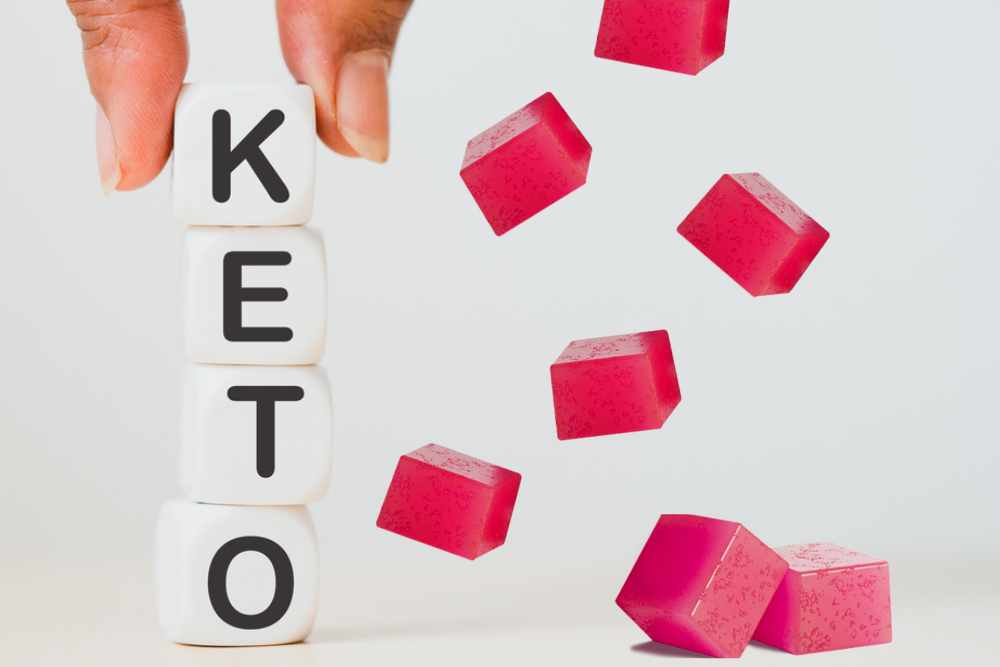WHAT ARE WOMEN USING CBD FOR?
Cannabidiol (CBD) for women, alongside other cannabis products, are growing at rapid rates in the realm of women’s health and wellness. CBD has been described as being a natural, organic, and holistic option for a wide range of health concerns or aims, with a general safety profile and minimal adverse effects. Although companies and products often allure to claims of certain health benefits, the research surrounding CBD and women’s health, specifically, are less evidenced in the research and medical literature.
WHAT IS CANNABIDIOL (CBD)?
CBD is the medical short term for cannabidiol, a non-psychoactive cannabinoid, derived from the Cannabis Sativa L. plant, also known as the hemp or marijuana plant. As a naturally occurring compound commonly used in CBD oils, salves, and tinctures, it aims to provide a feeling of relaxation and calmness. Unlike tetrahydrocannabinol (THC), this compound won’t get users “high”.

CBD oil can be extracted from both marijuana and hemp plants. When CBD is derived from the hemp plant, there may be 0.0% - 0.3% THC present. However, CBD oil derived from the marijuana plant may have 0.3% THC or greater present.
CBD for women has become of increasing interest for women of all ages, not to mention the potential health and wellness benefits that it may influence including improved sleep, mood, and well-being.
WHAT IS THC?
THC is the medical short-term for tetrahydrocannabinol. THC is a psychoactive compound derived from the cannabis plant. It is responsible for most of marijuana’s physiological effects. When most people think of THC they think of “weed” or “Mary J”.
THC is very different from CBD, in that it connects directly with cannabinoid receptors, thus, giving a “high” effect to users. THC attaches to these receptors activating them and affecting a user’s pleasure, movements, memory, thinking, and concentration.

THC may produce mind-altering effects in users, so if you’re wanting a “high-less” effect, CBD with 0.0% - 0.3% THC would be your best choice. THC stimulates cells in the brain to release dopamine, creating that “feel good” euphoria effect that users rave about.
THE ENDOCANNABINOID SYSTEM (ECS) ROLE
The endogenous cannabinoid system (ECS) is one of the most important physiological systems involved in maintaining and establishing human health and wellness. Yeah, you read that right. The goal of the ECS is to maintain a balance of homeostasis, which is our personal maintenance system in charge of keeping a stable internal environment despite changes in our external environment.
The endocannabinoid system can be described as a signaling system within your body, composed of endocannabinoids, receptors, and enzymes that work simultaneously and together with most other physiologically systems.

These cannabinoids can be found throughout the body, connective tissues, glands, immune cells, organs, and in the brain. These cannabinoids connect with cannabinoid receptors in our bodies, with the most well-known cannabinoid receptor 1 (CB1) and cannabinoid receptor 2 (CB2).
Interestingly enough, CBD does not bind directly with CB1 and CB2 receptors. More so, this cannabinoid acts indirectly with the endocannabinoid receptors and influences them in other ways. It influences these receptors through regulations of other compounds that interact with the endocannabinoid system receptors. Because it doesn’t connect directly with the receptors, it doesn’t cause users to “feel high”.
CBD OIL BENEFITS FOR WOMEN
CBD for women has been suggested to help with alleviating women-specific symptoms and concerns, especially in relation to hormonal health and regulation, mood, and menstrual complications/pain.
So what does the research say about CBD oil for women? Does it help? Can it help? Does it depend on your age, weight, stage of life?
Here’s the latest research on CBD for women broken down into the most evidenced, gender-specific, studies in the last 10 years.
1. CBD FOR SLEEP
Research shows that CBD for sleep may have a calming effect on the nervous system, aiding in sleep and anxiety (Shannon et al., 2019). CBD for sleep may also alter an individual’s mood because it affects the serotonin system, which helps signal our brain and body that it is time to head to bed. Outcomes from taking CBD for sleep may vary from person to person and can heavily depend on the product type and dosage used.
Unlike THC, CBD does not induce a feeling of being “high” or euphoria in users. Even large doses of CBD do not produce THC-like effects, since CBD is a non-intoxicating compound. In addition, studies of short-term CBD usage have suggested that patients do not experience withdrawal (Taylor et al., 2020).
According to the Mayo Clinic, sleep troubles may be ignited by a number of factors, including mental anxiety and physical pain (“Insomnia”, 2021). CBD for sleep may show promise and therapeutic potential in managing and assisting with pain and anxiety.

2. CBD FOR MOOD
Although CBD is not associated with getting users high, that doesn't necessarily mean that overall mood is not affected. CBD may be an effective part of an overall treatment protocol for people who suffer from various levels of depression and anxiety.
Recent preliminary studies have shown that CBD can alleviate feelings of anxiety and elevate your mood thanks to its ability to increase levels of the neurotransmitter of serotonin. Low levels of serotonin have been linked to depression. Traditional medications that are prescribed to patients with depression are designed to elevate levels of serotonin in order to give the mood a boost, and CBD oil has demonstrated to do the same through serotonin up-regulation.

3. CBD FOR WOMEN’S HEALTH
Very few studies have investigated the effects of cannabidiol, the endocannabinoid system, estrogen, and women. A recent 2021 review, published in The International Journal of Molecular Science, covers the complex interplay between the ECS and the estrogen system in central nervous system and periphery.
Vallee and colleagues demonstrated that estrogen may produce changes in emotional behavior by modulating ECS activity mainly through fatty acid amide hydrolase (FAAH) inhibition.
The above data suggest that estrogens can modulate directly ECS in the CNS, however, studies are still few and inconclusive. In view of the presence of the CB2 receptor and the different distribution and concentration of the CB receptors in the brain, it would be desirable that studies focus on both CB receptors expression and activity and better investigate the role of endocannabinoids degrading enzymes following estrogen treatments.

IS IT SAFE FOR WOMEN? IT IS SAFE FOR PREGNANT WOMEN?
According to Drs. Olson and Rittenburg in a 2019 Harvard Health CBD and women article, pure CBD seems to be safe for most people. In addition, the World Health Organization (WHO) has also supported the use of CBD and has described it as being “generally well tolerated with a good safety profile.”
However, there aren’t quite enough rigorous studies and long-term data to show for whether or not a wide range of CBD products and oils are safe for women (and everyone). For example, there is little to no evidence to indicate that CBD is safe during pregnancy or breastfeeding, thus far.
Nonetheless, a recent 2021 mice study investigated the effects of cannabidiol exposure in prenatal female mice and indicated that offspring exposed to CBD during development exhibited increased anxiety and improved memory behavior in a sex-specific manner. Thus, this study suggested that developmental CBD exposure is associated with mixed behavioral outcomes.

DOES CBD CAUSE SIDE EFFECTS?
CBD is largely well-tolerated, and its side effects are minimal and mild. Side effects that you may experience from CBD may include: lethargy, drowsiness, depressed appetite, and diarrhea. Even these symptoms are largely mild (Perucca, 2017).
If you want to avoid or minimize these potential adverse symptoms, it's best to start with a lower dosage of CBD and work your way up until you find a comfortable balance of effectiveness with minimal symptoms. As always, consult a doctor before adding any cannabinoid or CBD oil to your routine, especially if you take any other medications.
CBD FOR WOMEN: FINAL THOUGHTS
There are a lot of extravagant products, claims, and marketing tactics out there about the benefits of CBD for women, but little high-quality research supports them.
CBD Oil Drops and other CBD products aren’t well regulated, yet. Without FDA approval, there is still much room for error, variation, and faulty labeling that is, unfortunately, in the marketplace as we speak. Before using CBD for women, first talk with your doctor or healthcare provider to learn whether it could be safe and helpful for you.
Medical professionals and scientific researchers are making significant strides in uncovering the benefits, side effects, and potential modifying effects of CBD for women.

*DISCLAIMER: The information in this article is for educational purposes only. It does not exploit or provide medical advice of any kind. Therefore, any reliance you place on the information below is strictly at your own risk. Please check with your medical provider before starting or changing a CBD routine.
References
Hurd, Y. L. (2020). Leading the next CBD wave - Safety and efficacy. JAMA Psychiatry, 77(4), 341-342. doi:10.1001/jamapsychiatry/2019.4157.
Insomnia. (2016). Mayo Clinic. Retrieved on July 28, 2021, from https://www.mayoclinic.org/diseases-conditions/insomnia/symptoms-causes/syc-20355167
Vallée, M., Vitiello, S., Bellocchio, L., et al. (1014). Pregnenolone can protect the brain from cannabis intoxication. Science, 343, 94–98.
Shannon, S., Lewis, N., Lee, H., & Hughes, S. (2019). Cannabidiol in Anxiety and Sleep: A Large Case Series. The Permanente journal, 23, 18–041. https://doi.org/10.7812/TPP/18-041
Santoro, A., Mele, E., Marino, M., et al. (2021). The complex interplay between endocannabinoid system and the estrogens system in central nervous system and periphery. Int J Mol Sci, 22(2), 972.
Taylor, L., Crockett, J., Tayo, B., Checketts, D., & Sommerville, K. (2020). Abrupt withdrawal of cannabidiol (CBD): A randomized trial. Epilepsy & behavior : E&B, 104(Pt A), 106938. https://doi.org/10.1016/j.yebeh.2020.106938
Wanner, N. M., Colwell, M., Drown, C., & Faulk, C. (2021). Developmental cannabidiol exposure increases anxiety and modifies genome-wide brain DNA methylation in adult female mice. Clinical Epigenetics, 13(4).
Shannon, S., Lewis, N., Lee, H., & Hughes, S. (2019). Cannabidiol in Anxiety and Sleep: A Large Case Series. The Permanente journal, 23, 18–041. https://doi.org/10.7812/TPP/18-041
Taylor, L., Crockett, J., Tayo, B., Checketts, D., & Sommerville, K. (2020). Abrupt withdrawal of cannabidiol (CBD): A randomized trial. Epilepsy & behavior : E&B, 104(Pt A), 106938. https://doi.org/10.1016/j.yebeh.2020.106938
 Content Writer | Physiologist | Researcher
Content Writer | Physiologist | ResearcherKirsten is currently a PhD student studying Health Sciences at Rocky Mountain University of Health Professions (RMUoHP) in Provo, Utah, specializing in Human Physiology. She is a Research Assistant at RMUoHP in the Human Performance Lab as well as a Research and Development Writer for Nanocraft CBD. She is passionate about the influence of cannabis and CBD in sport as well as the benefits of lifetime movement on health and wellness.
- #cannabidiol
- #cbd
- #cbdoil
- #cbdproducts
- #hemp
Tagged under













No comments yet!
Be the first to comment